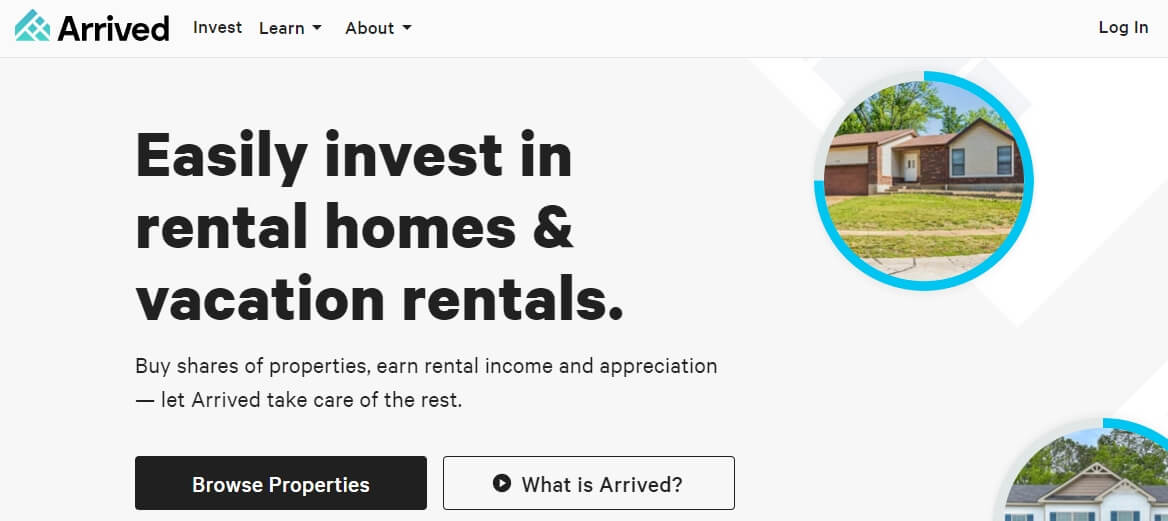15 Bad Money Habits That Keep You Broke & How To Break Them

This post may contain affiliate links which means that sproutinue.com may make a small commission at no extra cost to you. We only promote products that we love and feel will benefit our readers. Please read our Disclosure Policy for more information.
Is the rising cost of living taking a toll on your finances? Well, you’re not alone. According to Bankrate’s 2024 financial report, 64% of Americans say inflation adversely affects their savings.
66% lack emergency savings to cover a month’s expenses. Also, one in three Americans have fewer emergency savings than credit card debt.
These are more than just numbers because they mirror the struggles in our households. Separating yourself from these statistics is impossible because I’ve been there before.
I almost went into a downward spiral of poor mental health due to the constant stress from financial instability.
With time, I identified the problem’s root cause: bad money habits that stuck me in an endless hand-to-mouth cycle.
If you’ve read this far, I’m sure it’s because you want to turn your financial life around. Breaking these habits isn’t a walk in the park. You must be disciplined, dedicated, and focused for positive results.
From not tracking your expenses to a lack of financial literacy, let’s dive deeper into some poor money habits you need to break to achieve financial stability.
Bad Money Habits You Need To Break
Finding more sources of income is considered the best solution to living paycheck to paycheck.
However, breaking bad money habits is an excellent way to maximize income. Plus, the more you earn, the more money you’re likely to waste if you don’t keep your spending habits in check.
Here are some everyday bad money habits you need to break:
1. Impulse Buying
Impulse buying is one of the easiest bad money habits to pick up and the hardest to drop. I struggle with impulse buying myself, especially when I’m feeling a bit sad.
I handled my impulse buying addiction by creating a budget and sticking to it. This is easier said than done, but you can pull it through with dedication and discipline.
Another way to handle impulse buying is by creating a shopping list and going to the store with the exact amount you need. This way, you’ll need to sacrifice an item on your list to make an unnecessary purchase.
Ever heard of the 30-day purchase rule? If you want to buy something you don’t need, wait thirty days. If you still feel the same way after a month, then go ahead and purchase the product.
If you only want the item for temporary gratification, you won’t want to buy it after the month. Though it’s challenging, this is the most effective way of suppressing impulse buying urges.
2. Always Choosing Convenience
Do you always purchase brand-name products, take an Uber instead of public transport, or order fast food instead of cooking at home?
These expenditures may seem insignificant but can add up over time, causing a significant dent in your pocket.
For instance, say you buy takeout for lunch daily for $20 instead of carrying a packed lunch to work. This amounts to $440 for 22 workdays and about $5,280 annually.
If you also take a cab daily at $15, that’s $330 monthly and $3,960 annually. Adding that to the lunch cost estimate gives $9,240, which you could have channeled toward savings or investment.
We all need some luxury in our lives, but we shouldn’t let unnecessary expenses accumulate significantly.
3. Accumulating Credit Card Debt
Credit card debts often accrue high interest, which may cause a substantial financial burden. The solution is to strategize to eliminate the debts as soon as possible.
I don’t mean paying the monthly minimum balance alone. This is an excellent way to make debt payments consistently, but it doesn’t free you from the jaws of interest.
Start small if you must, but try finding ways to service your credit card debt. Even better is not taking on more debt than you can handle.
Credit cards offer the convenience of easy purchases, but becoming too dependent on them digs you deeper into the dark debt hole.
Using them improves your credit score, but I wouldn’t recommend it if you have difficulty paying back the amounts.
4. Prioritizing Wants Over Needs
Needs, including food, clothing, shelter, and medical care, are essential for survival. On the other hand, wants add luxury and comfort to our lives, but we can live without them.
Distinguishing needs from wants helps you stop spending money on stuff you don’t need. These items may offer temporary gratification at the expense of your long-term financial stability.
Prioritizing wants instead of saving may lead to debt accumulation in an attempt to maintain your lifestyle.
You may also be more vulnerable to financial changes since all your money is directed to unnecessary things instead of an emergency fund.
You shouldn’t eliminate all wants from your life but regulate unnecessary purchases to maximize your income.
If you have amassed items you no longer need, consider selling them on Facebook Marketplace or Mercari to declutter your home while making extra cash.
5. Not Tracking Your Spending or Budgeting
“If you can’t track it, you can’t improve it”
Tracking your expenses paves the way for proper financial management because it lets you know where your money goes.
By monitoring your expenses, you can identify poor spending habits and develop effective strategies to break them. It also helps you find areas to reduce costs and maximize your savings.
Budgeting almost always comes up in every conversation about money. It involves allocating specific amounts to certain expenses to avoid overspending.
Failure to budget correctly can lead to blind spending, costing you much money in the long run.
You don’t have to determine where every penny goes. That would be overwhelming. Simply divide your budget into four categories: essentials, wants, savings, and debts and begin your journey from there.
The envelope system is helpful if you’re tempted to overspend on wireless transactions. Consider paying yourself first if you’re tempted, even when making in-store purchases.
6. Taking Loans for Big Purchases
Another common bad habit is paying for big purchases with a simple card swipe. This could lead to the accumulation of credit card interest, leaving you in a vicious cycle of debt.
Plan ahead instead of waiting for big purchases to sneak up on you. Incorporating this principle into my life has helped me afford the things I want without breaking the bank.
For instance, the plan to buy a new $1,200 phone at the beginning of the year began in mid-2023. I started by calculating all costs, including delivery of $50, and then divided the sum into six parts.
From there, I saved $200 monthly from July to December last year to accumulate the $1,250 by January.
I know you’re asking why I didn’t just use my savings to purchase the phone, but that’s not how things should be.
Planning helps you become more responsible with your finances and avoid stress. Plus, buying something after saving up for a while is fulfilling.
7. Not Having an Emergency Fund
What would you do if you unfortunately got retrenched out of the blue? Will your emergency fund sustain you for a few months as you figure out what to do next?
While you can’t adequately prepare for the future because you don’t know what it holds, you can create a cushion to help with possible difficulties.
Lack of an emergency fund may lead to using your savings to cover unforeseen circumstances instead of investing to earn passive income.
Imagine maintaining discipline to save a substantial amount for retirement over the years, only to use it all in an unplanned situation.
While that is one way of handling things, having an emergency fund enables you to put other savings into good use.
8. Succumbing To Peer Pressure and FOMO
Peer pressure is often related to teenagers and youth but cuts across all ages.
Even if you resist pressure from celebrities because you’re too old to use social media, you’ll likely compare your financial progress with your closest friends and family.
Remember that everyone’s journey and purpose are different. Furthermore, needs and goals differ, so you shouldn’t expect to be in the same situation as a neighbor or friend.
Have you ever taken a loan to go to a party with your friends because you feared missing out? Or perhaps you’re constantly surfing social media for fear of missing out on deals on unnecessary items?
FOMO can set you back significantly because it robs you of the power to say no. You’re stuck with a $400 debt because you couldn’t politely decline the invitation to the party.
Always evaluate your financial status and be honest about what you can afford and what you can’t.
Instead of taking loans to finance parties, consider using the 50/30/20 budgeting method that lets you set aside 30% of your income for wants and guilt-free spending.
If you always try to keep up with the Joneses despite your financial goals, consider limiting social media or permanently removing the apps from your phone.
Living beyond your means not only affects your finances but also your mental health. You may develop poor mental health from the constant struggle to keep up a particular lifestyle.
9. Not Saving Money
You may not know it, but by failing to save money, you consciously choose to neglect your financial future.
Saving money for whatever goal, whether retirement, investment, or education, sets a foundation for financial stability.
On top of that, cultivating a saving culture makes you more responsible and reliable. You don’t have to hit the big numbers to succeed at saving.
Simply putting a few dollars aside regularly is enough. For instance, if you save $50 monthly, that amounts to $600 annually.
Saving requires a strategy to maximize your money. For instance, instead of letting your funds sit in a checking account without gaining interest, consider a high-yield savings account like Raisin, which offers up to 5.28% interest.
This way, by the end of the year, you’ll have more money than you deposited into your account.
Don’t just save for the sake of it. Attach it to a financial goal to inspire focus and motivation.
10. Inadequate Financial Literacy
Most people acquire bad money habits without noticing because we don’t discuss finances enough. Financial literacy has always been disregarded, especially in the past.
Thankfully, more bloggers, YouTubers, podcasters, and even politicians are rooting for financial literacy worldwide.
You can now utilize free online resources or enrol for an online course to learn more about saving, investing, and mindful spending.
Leap into the subject and discover different financial options available. Discover why investing in stocks differs from crypto.
Most of all, being financially literate helps you identify the bad money habits you may have picked up over the years. This gives you a chance to correct them and make more informed decisions.
11. The “I Deserve It” Mentality
You deserve the world for always showing up and working so hard. However, there’s a limit to the extent of this mentality in your financial life.
If you consistently reward yourself with unnecessary purchases for completing tasks, you’d deplete your savings or get stuck in a paycheck-to-paycheck lifestyle.
Self-love and rewarding yourself for making huge strides are essential, but not at the expense of your financial security.
Consider scheduling the “I deserve this” rewards for maybe once a month or a frequency that aligns with your goals and income.
Better yet, consider using the 50/30/20 budgeting approach, which lets you set aside 30% of your income for wants.
This way, you can afford to gift yourself often without compromising your financial stability.
12. Being Afraid To Invest
Speaking from experience, investing is scary in the beginning.
I was mostly afraid of losing my money, but all that changed when I picked an investment vehicle aligned with my risk tolerance.
Inadequate financial literacy is a significant cause of being scared of investing. You may want to do it theoretically but simply don’t know how.
You can start with a common investment everyone makes: retirement. Take advantage of your 401(k) to build a safety net for retirement.
From there, consider small steps like rounding up your spare change with Acorns to build stocks and ETF portfolios.

Once you feel ready to explore other options like crypto and REITs, you can use apps like Nexo or Arrived to create a portfolio.
Most trading apps offer a simulator to help you hone your skills before investing your money. Speaking to a financial advisor is also a good idea if you’re unsure where to begin.
Overall, investment is a fantastic way to make your money work for you. However, don’t delve into anything before understanding it fully.
13. Not Paying off Your Debts
Working hard only to channel a significant amount of your income toward debt repayment can be discouraging.
This causes most people to use avoidance to cope instead of facing their challenges head-on. However, the more you put off the problem, the bigger it becomes.
Remember that most debts accrue interest over time. Therefore, failing to repay them may lead to an increase in the amount to higher figures.
Furthermore, institutions like banks often charge penalties for late repayments. You need to start strategizing on the best ways to reduce your debt.
You can start with the smallest loans and work upwards towards the larger ones. Alternatively, if you like tackling the worst first, consider starting with the larger loans and working your way downwards.
Another strategy is taking a new loan with lower interest rates to pay off your debts. You can also negotiate better interest rates with your loaner to reduce the payable amount.
Whichever method you choose, paying your debts in time may improve your credit score, make you more responsible, and contribute to financial stability.
14. Thinking of Credit as Available Money
I picked up this bad habit in college and struggled to ditch it when I became more financially intelligent.
Have you been in a situation where you don’t have enough money in your bank but thought you could afford to buy what you wanted because you hadn’t maxed out your credit card?
If so, this is a mentality you must consciously choose to eliminate. If you can’t use your bank balance to pay for something, you can’t afford the item. It’s as simple as that!
Practice mindful spending to avoid taking out loans for unnecessary things. Credit cards have high interest rates, so the more you use them, the deeper you get into debt.
Using them is advantageous because it helps with your credit score, but you shouldn’t count your credit card limit as money in your pocket.
15. Paying Bills Late
If you often pay your bills late, you should start working toward dropping this bad money habit because it’s costing you more.
Some utility bills attract penalties if paid late. This can accumulate to significant amounts if you pay late every month.
Loans and credit cards often accrue interest over time. Repaying them late may cost more due to the accumulation of interest.
Furthermore, paying your debts late can impact your credit score negatively, leading to high interest rates the next time you apply for a loan.
More importantly, paying bills late may cause worry and anxiety, which may adversely affect your mental health.
Consider automating your payments by setting a schedule to guide you on when to pay your bills.
Final Thoughts
Bad money habits are hard to break. It’s like switching from your dominant hand to a non-dominant one.
You must invest the time, effort, discipline, and dedication to see this through and secure your financial future.
Overall, I hope this article provides insight into ditching poor money habits and how to do it.
Enjoyed reading this post? You may also like these articles:




